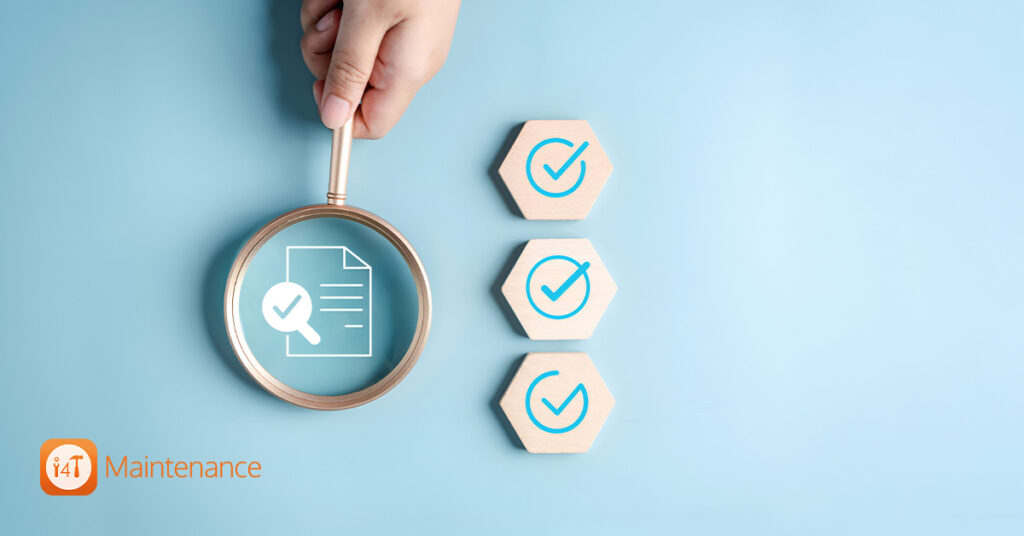Strata maintenance isn’t always as straightforward as it seems. For strata managers, there’s a lot to tackle, from keeping tenants happy to ensuring the property runs smoothly. And at the heart of it all, there’s a key element that can make or break the maintenance process: vendor management.
In this article, we’re going to break down how effective vendor management can seriously help streamline your strata maintenance.
We’ll walk you through the common challenges many strata managers face, and best practices you can implement to make your vendor management process smoother, quicker, and more efficient.
By the end, you’ll have a clear plan to start improving your vendor relationships and making your job a whole lot easier.
The Importance of Vendor Management in Strata Maintenance
Before we get into the nitty-gritty of best practices, let’s take a step back and talk about what vendor management really is and why it’s so important for keeping your strata running smoothly.
At its core, vendor management is about overseeing and coordinating the relationships you have with the people and businesses who provide services to your property. This includes everyone from the plumbers and electricians to the cleaners, landscapers, and security companies. If someone’s working on your property, they’re likely a vendor.
The key to vendor management isn’t just hiring someone to do the job; it’s making sure they’re qualified, reliable, and can deliver on time. You want to make sure your vendors are the best of the best, so they keep your property in tip-top shape and your tenants happy. When done right, vendor management can save you money, deliver better service, and help you stay on top of your compliance game.
Common Challenges in Strata Maintenance
Strata managers face a range of challenges when it comes to managing vendors. These hurdles can add stress and make the whole process feel like you’re constantly chasing your tail. Let’s dive into some of the biggest issues.
Inefficient Tracking of Compliance and Certifications
One of the biggest headaches in vendor management is ensuring your vendors are compliant with all the necessary regulations. A missed renewal could lead to serious safety risks or even legal trouble. Trying to keep track of multiple certificates for multiple vendors without a system in place can feel like trying to keep up with a runaway train.
Vendor Performance Issues
So, you’ve got a list of reliable vendors, but how do you know they’re actually doing a good job? The thing is, sometimes vendors don’t perform up to expectations; they might be late, leave messes behind, or simply fail to deliver the quality of work you expected.
Managing Multiple Quotes and Vendor Selection
Let’s be honest: getting quotes for work can be a pain. You’ve got to track down multiple vendors, compare prices, and figure out who’s the best fit for the job. It’s a time-consuming process, and sometimes, the cheapest quote isn’t always the best one.
Best Practices for Streamlining Vendor Management in Strata Maintenance
Now that we’ve covered some of the common roadblocks, let’s dive into the best practices that can help make vendor management a whole lot easier and more effective for you.
Build a Network of Reliable, Vetted Vendors
The first step in effective vendor management is ensuring you have a network of reliable and qualified vendors. This helps you avoid delays, poor service, and compliance headaches.
- Vet Vendors Before Hiring: Always check their qualifications, licenses, and insurance. A reliable vendor should be able to provide proof of all necessary certifications.
- Create a Backup List: It’s always a good idea to have a few trusted vendors for each service. That way, if one vendor is unavailable, you’re not scrambling for a solution.
- Review Your Network Regularly: Vendor performance can change, so review your list regularly to make sure you’re still working with the best.
With a strong vendor network, you’ll be able to act quickly when issues arise and keep things running smoothly.
Keep Track of Compliance and Certifications

It’s easy to forget about compliance certificates, but failing to keep track of expiration dates can lead to fines and safety risks. Implementing a system to monitor these certificates will save you from the headache of last-minute renewals.
- Automate Reminders: Use a tool or system to get automatic reminders when certifications are about to expire. This ensures your vendors are always compliant, and you avoid any unwanted surprises.
- Centralise Your Documentation: Keep all relevant documents in one place. That way, you’ll have easy access when you need to verify compliance or review a vendor’s qualifications.
When compliance is handled efficiently, you won’t have to worry about any gaps in your vendor’s qualifications.
Monitor Vendor Performance
To ensure you’re getting the best service, it’s essential to track vendor performance. You don’t want to keep working with vendors who are consistently late or underperforming.
- Track Work Orders in Real-Time: Use a system to monitor the progress of work orders so you can quickly spot delays or quality issues.
- Gather Feedback: Don’t just rely on your own observations; get feedback from tenants about the quality of vendor work. Their input can be a valuable indicator of whether a vendor is worth keeping.
- Create a Rating System: Establish a simple rating system to measure vendor performance over time. This makes it easier to make informed decisions when selecting or renewing contracts with vendors.
By monitoring performance, you’ll have the insights needed to build stronger relationships with the best vendors and let go of the ones who aren’t meeting your standards.
Simplify the Quotation and Selection Process
Getting multiple quotes can be time-consuming, and comparing them isn’t always straightforward. To make this process smoother:
- Standardise the Request Process: Always ask vendors to provide quotes with the same level of detail, so you can compare them easily.
- Look Beyond the Price: Price is important, but so is quality. Factor in vendor reliability, timelines, and previous work to make your decision.
- Negotiate Terms: Don’t be afraid to negotiate pricing and timelines to get the best deal for your strata.
With a standardised approach, you’ll save time and make more confident, informed decisions.
The best way to handle non-compliance in strata properties is to prevent it from occurring in the first place.
Building Strong Relationships with Your Vendors
Building strong, long-term relationships with your vendors is key to ensuring smooth and efficient strata maintenance.
Clear and open communication is essential for maintaining strong vendor relationships. Regular check-ins and proactive conversations help align expectations, avoid misunderstandings, and ensure timely, quality service. Don’t wait until issues arise; keep the lines open and provide constructive feedback when needed. Setting mutual expectations upfront ensures everyone is on the same page from the start.
As more time passes, shift from a transactional relationship to a partnership. Vendors who feel valued are more likely to provide better service and stay loyal in the long run.
Simple strategies like showing appreciation, involving them in planning, and offering regular feedback can build trust and strengthen your partnership, leading to more reliable and high-quality work.
Tips for Efficient Vendor Selection
Selecting the right vendor for your strata maintenance needs is crucial. Here’s how to make the process more efficient and effective:
How to Request and Evaluate Quotes
When seeking quotes, it’s important to provide vendors with all the necessary details so they can give you accurate and comparable proposals. Always get quotes from at least three vendors to ensure you’re getting a fair price and the best value.
When evaluating quotes, look beyond just the price. While cost is important, consider how quickly the vendor can complete the job. Look for similar projects they’ve completed and ask for references or reviews. Ensure the vendor holds the necessary licenses, insurance, and certifications for the work they’ll be performing.
By evaluating all aspects of the quote, you can make a well-rounded decision that prioritises quality and reliability, not just price.
Vendor Contracting Best Practices
Once you’ve selected a vendor, it’s time to formalise the agreement with a clear, comprehensive contract. A solid contract protects both parties and ensures expectations are met. Be clear about timelines, payment terms, and schedule, and set the expectations right from the start with a detailed scope of work.
Having a well-drafted contract is crucial to avoid conflicts and ensuring a smooth project. Both parties should have a clear understanding of their responsibilities and what the deliverables will be.
The Role of Tenant Feedback in Vendor Management

Tenant feedback is essential for assessing how well your vendors are doing. Tenants experience the results of a vendor’s work directly, so their insights can highlight areas of improvement or vendor excellence. For example, consistent complaints about a vendor’s timeliness or cleanliness can help you identify issues early, while positive feedback can highlight reliable, high-quality vendors.
Tenant feedback helps you refine your vendor selection and maintenance processes. You can do so by setting up an easy feedback system and following up to ensure concerns are resolved.
How Technology Can Revolutionise Vendor Management in Strata Maintenance
Technology can greatly simplify vendor management in strata maintenance. Here are some essential features to look for in a vendor management system:
Compliance Tracking: Automatically track and manage vendor certifications and insurance expiry dates to ensure ongoing compliance without the risk of forgetting key deadlines.
Performance Monitoring: Real-time tracking of vendor performance, including work completion, timelines, and quality, helps keep everything on track and allows for informed decisions when selecting future vendors.
Real-Time Updates: Get live updates on work orders, ensuring you’re always in the loop. This helps you address any delays or issues before they become bigger problems.
Centralised Communication: A unified platform for communicating with all vendors, making it easier to keep track of conversations, approvals, and requests.
AI for Smarter Decisions: AI features in your vendor management system can help predict the best vendors for specific tasks based on historical data, performance, and feedback, allowing strata managers to make more informed choices quickly.
Automation for Streamlined Processes: Routine tasks such as sending reminders for compliance renewals or scheduling recurring work can be automated, freeing up valuable time for more strategic tasks.
Simplify Strata Maintenance with Smart Vendor Management
Effective vendor management is key to smooth strata operations. By building a reliable vendor network, tracking compliance, monitoring performance, and gathering tenant feedback, you can improve service quality and maintain efficiency.
Implementing a maintenance management system like i4T Maintenance can help streamline your vendor management processes, saving time, money, and sanity.
Book a demo today.
FAQs
Vendor management helps ensure your strata property runs smoothly, stays compliant, and receives high-quality services. It helps you avoid delays, poor service, and unexpected costs.
Request quotes from multiple vendors, evaluate their performance, certifications, and past work, and consider turnaround time and reliability, not just the price.
Use automated reminders and a centralised system to monitor compliance certificates, insurance, and licences. This ensures vendors stay up to date without any hassle.
.
Tenant feedback helps you assess vendor performance, spot issues early, and improve the overall service. It’s essential for ensuring high-quality work and tenant satisfaction.
Technology like vendor management systems automates tasks like compliance tracking and performance monitoring, helping you stay organised, save time, and improve service delivery.

